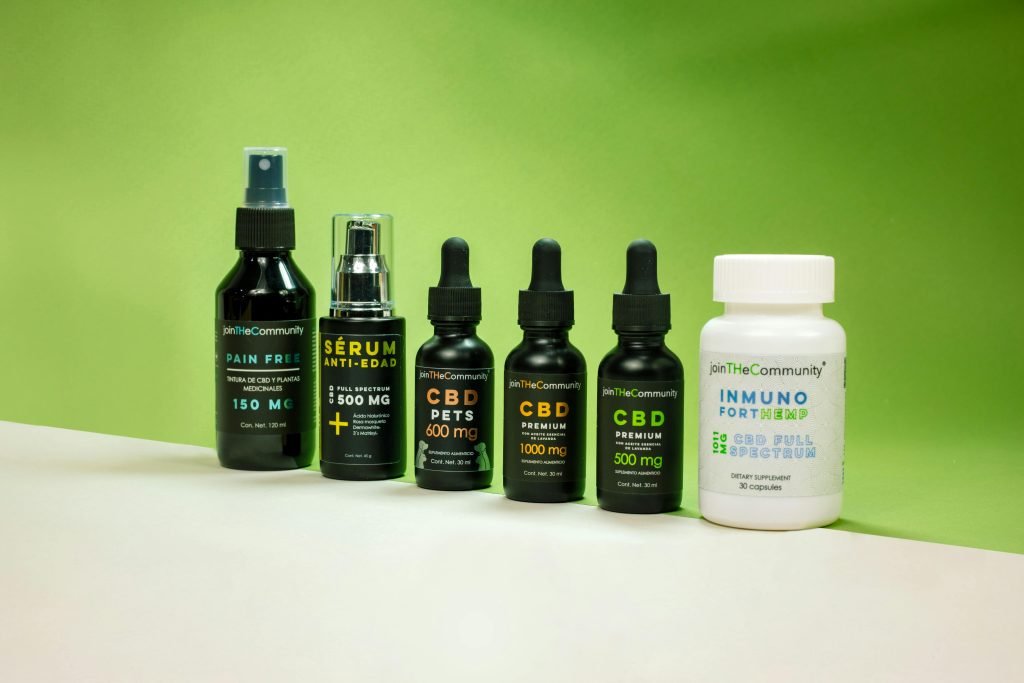If you find yourself in a position where you can’t afford your medication, it can be an overwhelming and stressful situation. It’s not uncommon for healthcare costs to put a strain on your finances, but there are options available to help alleviate this burden. In this article, we’ll explore some practical steps you can take if you can’t afford your medication, including seeking financial assistance programs, exploring generic alternatives, and speaking with your healthcare provider. No one should have to choose between their health and their financial stability, so let’s find solutions together.

This image is property of images.pexels.com.
Explore Generic Options
Research generic alternatives
When faced with the challenge of affording medication, one option to consider is switching to generic alternatives. Generic medications are essentially identical to their brand-name counterparts but are usually available at a significantly lower cost. By conducting thorough research on generic options, you can identify which medications have generic versions and discuss them with your healthcare provider.
Talk to your doctor or pharmacist about generic options
To explore generic alternatives further, it is essential to have open and honest conversations with your healthcare provider or pharmacist. They can provide valuable insights into the availability and suitability of generic medications for your specific condition. They can also address any concerns or misconceptions you may have about generic drugs, helping you make an informed decision about switching to a more affordable option.
Compare prices of generic and brand-name medications
To make an informed decision about whether to opt for a generic medication, it is crucial to compare prices. Different pharmacies may offer varying prices for both generic and brand-name medications. By comparing these prices, you can gauge the potential savings and determine which option best fits within your budget. Remember, the effectiveness of generic medications is generally equivalent to that of their brand-name counterparts, meaning you can potentially save money without compromising on quality or efficacy.
Check for Patient Assistance Programs
Search for pharmaceutical company assistance programs
Many pharmaceutical companies offer patient assistance programs to help individuals who cannot afford their medications. These programs can provide discounts, vouchers, or even free medication to eligible individuals. To take advantage of these programs, it is helpful to research pharmaceutical company assistance programs specific to the medications you require. Utilizing these programs can significantly alleviate the financial burden associated with purchasing medication.
Contact non-profit organizations for financial assistance
Non-profit organizations dedicated to helping individuals in need often have financial assistance programs in place to support those struggling with medication costs. These organizations may provide grants or other forms of financial aid to eligible individuals. Initiating contact with these organizations and inquiring about potential assistance can provide you with valuable resources and support to help alleviate the financial strain.
Ask your healthcare provider for information about assistance programs
Your healthcare provider can be an invaluable resource when it comes to exploring patient assistance programs. They may have information about local or regional programs that can help lower medication costs. By discussing your financial situation with your healthcare provider, they can guide you towards the most suitable resources and help you navigate the application process for assistance programs.
Consider Prescription Discount Cards
Look for prescription discount cards online
One option to explore when affordability becomes a concern is prescription discount cards. These cards can offer significant savings on prescription medications, allowing you to access your necessary medication at a reduced cost. Many websites and platforms provide information and resources for obtaining prescription discount cards. By conducting online research, you can find reputable sources and gather the necessary information to acquire a prescription discount card.
Compare different discount cards
It is important to compare different prescription discount cards to determine which one offers the most substantial savings for your specific medications. While some discount cards may provide a percentage off the total price, others offer fixed dollar savings. By comparing the discount amounts and considering any fees associated with the cards, you can make an informed decision about which discount card is best suited to your needs.
Present the discount card at your pharmacy
Once you have obtained a suitable prescription discount card, present it to your pharmacist when filling your prescription. The discount card will often be scanned or entered into the pharmacy’s system, and the applicable savings will be applied to your medication cost. Remember to always have your discount card on hand to ensure you receive the discounted price every time you purchase your medication.
Talk to Your Healthcare Provider
Discuss your financial situation with your healthcare provider
When facing difficulties affording your medication, it is crucial to have an open and honest conversation with your healthcare provider about your financial situation. By discussing your concerns, they can gain a better understanding of the challenges you are facing and provide guidance on potential solutions or alternatives that are more affordable for you. Your healthcare provider is there to help and support you, so do not hesitate to discuss any concerns you may have.
Ask if there are cheaper alternative medications
During your discussion, inquire about cheaper alternative medications that may be equally effective for your condition. Sometimes, more affordable options exist that can provide similar benefits without the high cost associated with certain brand-name medications. Your healthcare provider possesses the knowledge and expertise to evaluate available alternatives and recommend the most suitable option for your needs.
Seek guidance on managing medication costs
In addition to discussing alternative medications, your healthcare provider can also provide guidance on managing medication costs more effectively. They may be able to recommend specific pharmacies or assistance programs that can significantly reduce the financial burden. Additionally, they may have tips or strategies for improved medication adherence, reducing waste, or optimizing the use of your prescribed medications.

This image is property of images.pexels.com.
Explore Government Prescription Assistance Programs
Research programs like Medicaid, Medicare, or Part D
Government assistance programs like Medicaid, Medicare, or Part D can provide valuable support for individuals struggling with medication costs. Conduct thorough research to understand the eligibility requirements and benefits associated with these programs. It is important to familiarize yourself with the specific guidelines and coverage options to determine if you qualify for any government assistance programs.
Check eligibility requirements
Eligibility requirements for government assistance programs may vary, so it is important to review and assess them carefully. Factors such as income, age, disability status, and medical necessity may influence your eligibility for certain programs. By understanding the requirements, you can determine if you qualify and take necessary steps to apply for assistance.
Apply for assistance programs
Once you have determined your eligibility, take the necessary steps to apply for government assistance programs. These programs can provide significant financial relief, ensuring you have access to the medications you need at an affordable cost. Seek guidance from your healthcare provider or local government offices to navigate the application process and gather all required documentation to increase your chances of a successful application.
Seek Lower-Cost Pharmacy Options
Compare prices at different pharmacies
Pharmacy prices for the same medication can vary significantly. By comparing prices at different pharmacies, you may discover lower-cost options that can help you save money on your prescriptions. Consider both local pharmacies and larger chain pharmacies, as their prices can differ. Keep in mind that choosing a lower-cost pharmacy does not mean compromising on the quality or effectiveness of your medication.
Look for online pharmacies with lower prices
In addition to comparing local pharmacy prices, exploring online pharmacies can be a worthwhile endeavor. Online pharmacies often offer competitive prices, discounts, or bulk-buying options that can result in substantial savings. Before purchasing from an online pharmacy, ensure its legitimacy by verifying its accreditations and checking customer reviews. It is also important to prioritize online pharmacies that require a prescription from a licensed healthcare provider to ensure safety and quality.
Consider mail-order pharmacy services
Mail-order pharmacy services can be a cost-effective option for individuals who need medications on a regular basis. These services typically offer medications in larger quantities, resulting in lower costs per dose. By utilizing mail-order pharmacy services, you can save money on both the medication itself and potentially on shipping fees as well. However, it is crucial to ensure that the mail-order pharmacy is reputable, licensed, and can deliver your medication safely and reliably.

This image is property of images.pexels.com.
Inquire About Manufacturer Coupons or Rebates
Look for coupons or rebates offered by medication manufacturers
Many medication manufacturers offer coupons or rebates to help individuals save money on their prescriptions. These programs can provide significant discounts, reducing the financial burden associated with purchasing medication. Research the medication manufacturer’s website or contact their customer service to inquire about any available coupons or rebates for your prescribed medications.
Check manufacturer websites or contact customer service
Manufacturer websites can be valuable sources of information regarding available coupons or rebates. Take the time to explore these websites, as they may have dedicated sections or programs specifically designed to assist individuals who cannot afford their medication. If you cannot find the information you are looking for online, reaching out to the manufacturer’s customer service department can provide you with the necessary details.
Find out if you are eligible for any programs
Manufacturer coupons or rebate programs may have specific eligibility criteria. It is essential to determine if you meet the requirements for any available programs. These criteria can vary, and factors such as income, insurance coverage, or specific medical conditions may influence eligibility. By finding out if you are eligible, you can take advantage of any cost-saving opportunities provided by the medication manufacturer.
Speak to a Social Worker or Case Manager
Contact a social worker at your healthcare facility
Social workers are healthcare professionals trained to provide support and assistance to individuals facing various challenges, including medication affordability. If you are receiving care at a healthcare facility, such as a hospital or clinic, reach out to the assigned social worker for guidance. They can help you navigate available resources and programs that can alleviate the financial burden of your medication costs.
Discuss your medication affordability concerns
During your conversation with a social worker or case manager, openly discuss your concerns regarding medication affordability. Providing them with a comprehensive understanding of your situation can help them identify the most appropriate resources and support available to you. Social workers are experienced in advocating for patients and connecting them with organizations that can provide financial assistance or other forms of support.
Inquire about available resources or support
In addition to addressing your immediate concerns, inquire about any additional resources or support programs that may be available to you. Social workers and case managers often have extensive knowledge of community-based organizations, grants, or other forms of assistance that can provide further financial relief. By seeking their guidance, you can tap into resources that you may not be aware of on your own.
Explore State Assistance Programs
Look into state-specific programs for medication assistance
Many states have programs and initiatives in place specifically designed to assist individuals with medication affordability. These programs can vary from state to state, so it is important to conduct research on state-specific resources and programs available to you. By exploring these programs, you can potentially access additional support beyond what is provided at the federal level.
Check eligibility requirements
Similar to government assistance programs, state-specific programs for medication assistance may have specific eligibility requirements. Carefully review the criteria outlined by your state to understand if you qualify for any available programs. Factors such as income, age, residency, or specific medical conditions may influence your eligibility. Understanding the requirements can help you strategize and apply for appropriate state support.
Apply for state support
Once you have determined your eligibility for state-specific assistance programs, take the necessary steps to apply for the available support. This may involve completing application forms, providing supporting documentation, and following any instructions provided by the state program. Seeking guidance from a social worker, case manager, or local government office can help you navigate the application process successfully.
Consider Prescription Assistance Charities
Research non-profit organizations that provide medication assistance
Several non-profit organizations are dedicated to helping individuals access vital medications when they face financial hardships. These organizations often have specific programs or initiatives in place to provide assistance to those in need. By conducting thorough research, you can identify reputable non-profit organizations that align with your needs and values.
Explore eligibility criteria
As with other assistance programs, non-profit organizations may have specific eligibility criteria to determine who can receive their support. These criteria could be based on income, medical condition, or other factors. Understanding the eligibility requirements allows you to assess whether you qualify for assistance from non-profit organizations and determine the next steps to take.
Apply for assistance
If you meet the eligibility criteria, consider applying for assistance from non-profit organizations. Take the time to complete the application accurately and provide any required documentation. Non-profit organizations often have limited resources, so applying promptly and following any specified procedures can increase your chances of receiving the help you need. Remember to reach out to the organization’s representatives for guidance or clarification if needed.
In conclusion, facing medication affordability issues can be overwhelming, but there are various strategies and resources available to help alleviate the financial burden. By exploring generic options, checking for patient assistance programs, considering prescription discount cards, talking to your healthcare provider, exploring government assistance programs, seeking lower-cost pharmacy options, inquiring about manufacturer coupons or rebates, speaking to a social worker or case manager, exploring state-specific assistance programs, and considering prescription assistance charities, you can proactively address the challenge of affording your medication. Remember, it is crucial to reach out for guidance and support, as there are dedicated professionals and organizations ready to assist you in accessing the medications you need at a price you can afford.


